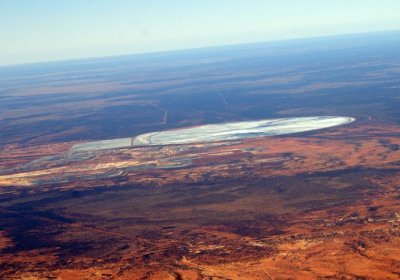Within weeks, Greenland's parliament is expected to pass a bill reinstating a ban on uranium mining that was lifted in 2013 under pressure from mining companies, reports Peter Boyle.
Uranium mining and industry
The new war alliance — AUKUS — formalises Australia's hostile positioning toward China. It also hands the pro-nuclear lobby a new angle, writes Pip Hinman.
Peter Boyle reports on a scandal erupting over attempts to prevent Inuit Ataqatigiit candidate Múte Bourup Egede from winning the country's election in April.
Residents in Sydney’s Inner West are joining the push back against those wanting to lift the ban on uranium mining in New South Wales, reports Pip Hinman.
It is no accident that nuclear energy has resurfaced in the public debate as a more widespread public understanding about the necessary transition to renewables takes place, anti-nuclear activists tell Paul Gregoire.
The NSW government is pushing to lift the state's 33-year-old ban on uranium mining, prompting environmentalists and unions to speak out, reports Pip Hinman.
Nuclear power is prohibited in Australia, but a review is underway and the nuclear industry wants the ban removed. Jim Green argues laws banning nuclear power have served the country well and must be retained.
The Traditional Owners of the Tjiwarl native title claim lost their Supreme Court appeal to have the approval for the Yeelirrie uranium mine revoked on July 31.
The WA state Labor government announced on June 20 that it will not obstruct the construction of the four uranium mines in the state that have already received environmental approval. But it says it will block future proposals.
Toro Energy's Wiluna project, Vimy Resources' Mulga Rock project, and Cameco's Kintyre and Yeelirrie projects were all approved before Labor won the March election. Environmental approval for Yeelirrie was initially denied amid fears several species of subterranean fauna would be made extinct, but it eventually got the nod anyway.
In a statement to the Senate on June 13, the federal government confirmed it will sell uranium to Ukraine despite significant safety and security concerns raised by the Joint Standing Committee on Treaties (JSCOT).
In February a JSCOT investigation found that existing safeguards were “not sufficient” and there was a risk Australian nuclear material would disappear in Ukraine.
- Previous page
- Page 2
- Next page











